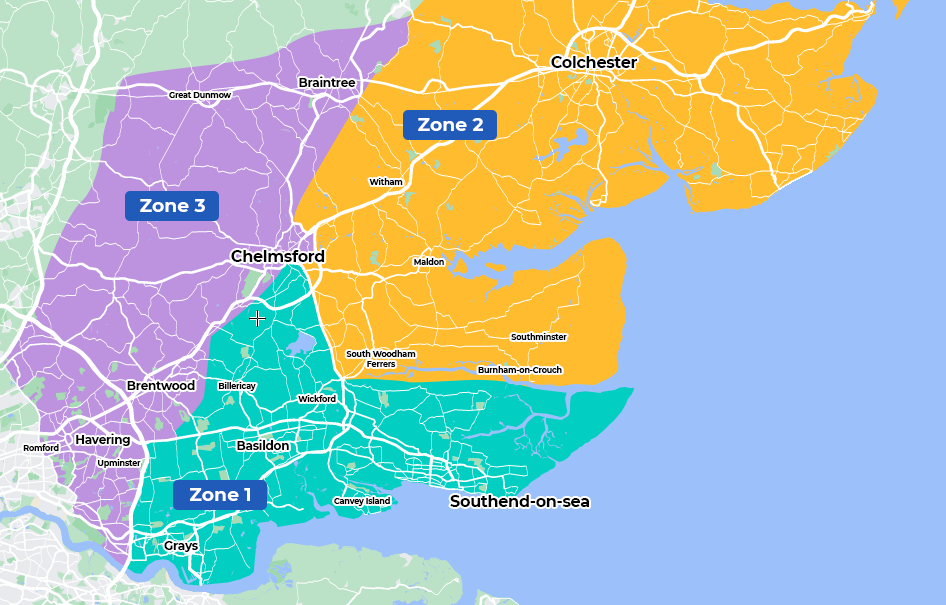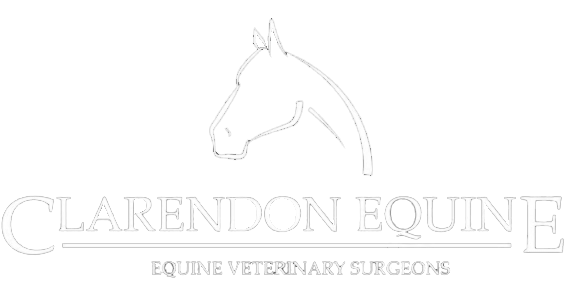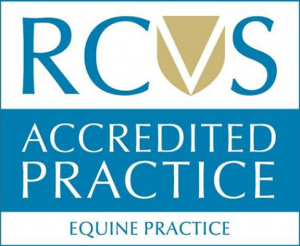24-hour Emergency service
We provide a dedicated on-call service 24 hours a day 365 days a year. There is always a vet at the end of the phone should you need an emergency call out after normal working hours or on a weekend. Just call our usual reception on 01245 346904 and selection option 2 to be connected to the vet on call. We share our out of hours service with a group of local Equine Vets (Essex Equine Vets out of hours service) to make sure we always have at least 2 vets available each night and weekend to respond to you as quickly as possible.
Castrations
We can carry out routine castration of colts at your yard or at our clinic. The majority of our castrations are conducted under sedation and local anaesthetic, usually up until the age of 3-4yrs of age. We usually recommend that colts over the age of 5 year’s old, miniature horses/Shetland ponies (too low to the ground for surgical access) and horses that are not well handled/very nervous are castrated under a short general anaesthetic.
It’s important to check that both your horse’s testicles have descended prior to booking a castration. We can happily check this for you at a routine appointment for example at your horse’s vaccination prior to castration. We recommend that all horses/ponies are vaccinated for tetanus prior to castration.
If one or more testicle(s) have not descended, then we can discuss the available and appropriate options for surgery with you. These can be complex since the un-descended testicle has to be located within the abdomen or groin area depending on how much it has descended. This procedure also requires a hospital stay. Further information on castrations can be found in our information for owners section.
We usually run a castration clinic once a year at the clinic at a reduced price. Follow our Facebook page or blog posts for upcoming dates. On these days we usually have Veterinary students helping with the procedures, so we ask that you are patient with us if you choose to book on one of these days for the reduced fee.
The BEVA trust is also worth while getting in contact with if you are struggling financially to afford to castrate your colt. Further information on eligibility and their welfare clinics are available on the BEVA trust website (www.beva.org.uk/Volunteering-Opportunities/BEVA-Trust) and the British Horse Society (BHS) (www.bhs.org.uk/about-us/our-wlefare-work/healthcare-education-clinics)
Dentistry
We provide a full service to our clients which spans from routine dental care to more complex cases requiring extractions at our clinic. Routine dentistry (examination and treatment of overgrowths/sharp enamel points) can be conducted at your yard as a part of our half price sone visit scheme.
We conduct a full oral examination with a mirror under sedation as part of this service. We provide you with a dental chart for reference of any identified dental conditions at the appointment, our recommendations and any treatments carried out at the time. We take great care in our approach using our new and quieter motorised equipment (with high quality diamond burrs which are the safest and most effective for routine removal of sharp enamel points). Our use of sedation for all dental work means we can examine all areas of the mouth and teeth as thoroughly as possible. This also creates a safer and calmer environment for our clients, patients, and the vets. Your horse’s head is rested on a padded head stand for the duration of the procedure with minimal stress to all involved. Further information about equine dentistry can be found in our information for owner’s section.
For horses that require more complex treatment such as extractions of fractured/diseased teeth, sinus surgery or fillings for the treatment of decay lesions are usually treated at our clinic with the visiting specialists from the Equine Dental Clinic (www.equinedentalclinic.co.uk). This allows us to provide an in-house referral service for these treatments throughout the year for our clients.
24/7 Emergency Support
Endoscopy
Our mobile high quality endoscopy unit can be used to examine the respiratory tract, teeth, uterus, and bladder. We have three different endoscopy cameras for these purposes which can be passed into these regions for a detailed examination of the above areas.
For horses with suspected upper respiratory or lung diseases such as equine asthma our endoscopes can be used to examine the upper and lower airway (up to the level where the trachea divides into two branches) and obtain fluid samples for further laboratory testing. We can also examine the nasal cavity, guttural pouches, and the larynx (upper airway) for horses with suspected upper airway obstructions.
Our Gastroscope is over 3 metres long which enables us to visualise the oesophagus, stomach and first part of the small intestine in all our patients (large and small!). We conduct regular once monthly gastroscopy clinics at the practice on the first Tuesday of every month at a reduced fee (contact us to book in). We also provide free Ekyguard supplements and a voucher towards any recommended omeprazole treatment if required to those coming into the clinic for this service for an initial investigation.
Dental endoscopy is extremely useful for complex dental cases where we need a detailed view of the teeth. This is particularly useful for detecting decay lesions which need filling or assessing teeth more closely that may need extracting.
Finally, our smaller endoscope is ideal for detailed examinations of the bladder if there is a history of urination problems or a worry about bladder stones (particularly male horses). We can also carry out a detailed examination of the uterus for any significant fertility issues in mares where indicated.
Euthanasia
One of the most difficult subjects for any horse owner. We are on hand to help you through the process and offer advice and guidance to all our clients with one of the hardest decisions. We work closely with three local equine crematoriums and can arrange this service for you after the vet has attended your horse. Our staff have attended bereavement training at Resting Horses to make sure we can help you through this as best we can. Contact details for the equine crematoriums are listed below:
www.restingpets.co.uk/crfemation-services/horse-cremation-services
Export Certification
If you need to travel your horse within the EU or to a third country, we can provide pre-export checks and approved certificates from our practice. All our Vets are listed as Official Veterinarians with the APHA (animal health and plant agency), so we are on hand to advise and sign certificates for many destinations.
There are differing requirements for many countries, so we advise owners to check with their transporter and the government website for guidance on the export papers required. Blood samples, any parasite treatments or vaccinations should be checked well in advance of export so we can book these in if necessary for your requirements.
The owner or transport company are required to advise the APHA of their export requirements and vet to which they wish their export health certificates to be sent to. We can advise you or direct you to approved transporters for this if you are unsure.
Horses are required to be examined 24-48 hours before export. We ask that owners make sure to book their appointments with enough time in advance to arrange these when they know their export date. This also allows us time to complete and submit the documentation in advance of this date.
Half Price Zone Visit Scheme

Mondays
Zone 2
Fridays
Zone 3
Tuesdays
Half Price Zone Visit Scheme
We run a half price zone visit scheme on Mondays, Tuesdays and Fridays each week. Check out the map to see which day of the week we are in your area. On these days your usual visit fee is charged at 50% of the price. For further savings it can be beneficial for multiple owners at one yard to share this half visit fee between them.
These visits must be booked and paid for at least 24hrs in advance of the day you are booking onto. A text message with your visit time and link to pay for your services is sent out the day before your booked zone visit. For these visits to be economical we arrange the visit times and best route for the vets. Unfortunately, we are therefore unable to accommodate any time requests or allocate a specific vet for these visits.
Services included in this scheme:
- Vaccinations
- Passports and microchips
- Routine dental examinations (not wolf tooth or other dental extractions).
- Strangles blood samples.
- Follow up appointments (re-checks) for repeat blood samples. Such as ACTH samples for Cushing’s disease monitoring (PPID) and insulin samples for equine metabolic syndrome monitoring (EMS) if your horse or pony has already been diagnosed.
If you are unsure whether our Zones cover your area or if you want to make a booking, please call:
In-patient care
We have four large loose boxes at our clinic for patients staying for surgery, day procedures, lameness investigations and those requiring close medical attention such as fluid therapy (a drip). There are CCTV cameras in all our stables for close monitoring alongside our regular checks.
Lameness examinations
These can be conducted at your yard or at our clinic depending on what suits you and your horse best. These examinations can be a lengthy process in some cases, so we do encourage clients to bring their horses into our purpose-built clinic for the day if an initial examination indicates this is appropriate for your needs. If we are conducting these at your yard, then we just ask for you to make sure we have suitable facilities/areas to watch your horse ridden/lunged on hard and soft surfaces (menage ideally) as well as a hard trot up area to observe them in hand in a straight line.
Diagnosis of the affected area(s) involves sequential local anaesthetic nerve blocks and/or joint blocks to identify the region where the horse’s lameness improves after the application of the local anaesthetic in that area. This is then followed by diagnostic imaging (x-ray and ultrasound) of the region. Further advanced imaging techniques such as magnetic resonance imaging (MRI), computed tomography (CT) or gamma scintigraphy (radio-isotope bone scan) may be recommended after the results of the initial examination to provide further detailed information on the diagnosis and aid prognosis.
Referral for the above advanced imaging techniques is usually made to our preferred referral centre at the Royal Veterinary College Equine Hospital (www.rvc.ac.uk/equine-vet/hospital-and-specialists).
For further information on lameness examinations check out our information for owners page.
Radiography (x-ray examination)
Our mobile battery-operated x-ray equipment can be taken to your horse and images acquired in the comfort of their stable or even in the field in an emergency. Our equipment produces high quality images for the investigation of lameness, dental and sinus conditions, back and neck pain and as a part of a pre-purchase examination if requested. Our direct radiography unit (DR system) generates the images straight onto a laptop whilst we are with you and your horse so we can check the images straight away.
If we’re conducting an x-ray examination at your yard, then we ask that a suitable area is marked out, and anyone present on the yard is made aware. Anyone who is pregnant or under the age of 18 should not be assisting or holding the horse for these examinations. We usually have an assistant with us for these examinations.
We Care About Your Horse
Stud work and artificial insemination
Our practice is listed on the BEVA approved AI list (www.beva.org.uk/Guidance-and-Resources/Stud-Medicine/AI-List) for fresh and chilled semen. Our artificial insemination packages provide a comprehensive service for clients wishing to breed from their mare. Click the link above to view all the details and prices of these packages. Mares are welcome to be scanned at the practice in our stocks or out at your yard with our mobile battery-operated ultrasound scanners. We are also on hand for any advice or questions around foaling as well as on call vets available 24/7 for any foaling emergencies.
Surgery
Our fully equipped theatre and padded recovery room on site provide perfect facilities for elective orthopaedic and soft tissue surgery. We have regular visiting specialists from Rossdales Equine Hospital (www.rossdales.com) and Sarcoid surgery Ltd (www.sarcoidsurgery.com). Our spacious row of loose boxes also provide a comfortable and relaxing environment for patients to recover post-surgery. Our treatment room with stocks is also utilised regularly for standing surgical procedures such as dental extractions, sinus surgery, laser surgery, wound repairs and eye surgery.
Shockwave treatment
Our focused Neovet shockwave machine is ideal for keeping sports horses on the road. Our machine is veterinary specific and enables us to treat lower limb conditions such as the proximal sensory ligaments or splints with our standard probe as well as the back and sacrifice-iliac regions with our power probe (for deeper penetration of the shockwave). It is a brilliant tool to complement medical treatment of conditions such as ‘kissing spine’ and sacro-iliac joint region pain as well as lower limb conditions such as inflamed, painful splints, proximal dispensary desmitis (PSD) and suspensory branch injuries.


